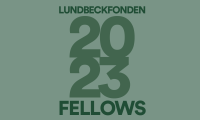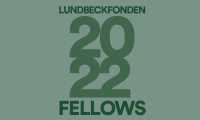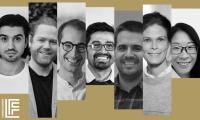Five eminent young scientists are the Lundbeck Foundation’s new Fellows

They are among the most promising biomedical science researchers of their generation. Their research projects have the potential to revolutionise their fields. And they can now call themselves Lundbeck Foundation Fellows. Backed by 10 million Danish kroner they can dedicate the next five years to concentrated research.
On Monday evening, five new Lundbeck Foundation Fellows each received a research scholarship of DKK 10 million. This is the eleventh time the Lundbeck Foundation is awarding fellowships and, yet again, the recipients are young but well-established researchers in their fields.
“The aim of the scholarships is to give talented young scientists a unique opportunity to conduct targeted and concentrated research over a five-year period and, at the same time, to build up a research team and to grow as research directors. We’re very much looking forward to following the progress of the five ambitious and potentially ground-breaking research projects on the drawing boards of our new Fellows,” says Anne-Marie Engel, Director of Research at the Lundbeck Foundation.
The five Lundbeck Foundation Fellows are:
Martin Roelsgaard Jakobsen, PhD, Associate Professor, Department of Biomedicine, Aarhus University
Martin Roelsgaard Jakobsen aims to investigate how we can put our innate immune system to better use in the fight against cancer. Among other things, he will examine the STING protein, which acts as a kind of doorbell for our immune system. When STING is activated, signals are sent into the cell’s nucleus, warning of imminent danger. This triggers a response from our immune cells to ward off the danger that is present.
If we can manipulate STING and the signals that are initiated to increase activity, we may not only be able to slow down the development of cancer but may prompt the patient’s own immune system to remove the cancer cells altogether.
“My goal is for the basic scientific knowledge that I acquire during my Fellowship to encourage other scientists to research into the potential for activating the innate immune system to provide cancer patients with better treatment options and cure more people,” says Martin Roelsgaard Jakobsen.
Rasmus Otkjær Bak, PhD, Assistant Professor, Department of Biomedicine and Aarhus Institute of Advanced Studies (AIAS), Aarhus University
Rasmus Otkjær Bak will use CRISPR technology to edit genomes in the stem cells of the blood and, thus, to remove genetic mutations and cure a range of serious blood diseases.
He will initially attempt to create a new tool for improving the efficiency of genome editing of the blood’s stem cells in the laboratory to increase the number of corrected stem cells for transplantation back into patients.
His second goal is to identify a method for correcting genomes in the blood’s stem cells by an injection into the patient instead of removing the cells from the body first.
“This is not something that’s just around the corner – we reckon it’ll take a relatively long time – but it would be a total game changer because this would be a drug that we could mass-produce, store and send, for instance, to third-world countries, enabling us to cure many more patients,” says Rasmus Otkjær Bak.
Pernille Højman, PhD, Centre for Active Health, Rigshospitalet, University of Copenhagen
Pernille Højman’s research will investigate whether exercise in itself acts as a kind of cancer drug. Among other things, she will study which immune processes are triggered by exercise in a group of patients with oesophageal cancer who are undergoing chemotherapy while following a special twelve-week exercise programme.
The aim is to provide a better understanding of the molecular signalling pathways that are activated or strengthened during exercise.
“My dream is that doctors in cancer departments around the country will become aware of the extremely beneficial effect of exercise, and that they’ll be given the opportunity to prescribe an exercise programme as a natural part of cancer therapy,” says Pernille Højman.
Søren Egedal Degn, PhD, Assistant Professor, Department of Biomedicine, Aarhus University
Søren Egedal Degn aims to investigate whether we can add a new type of inheritance to our list of ways in which we are coded and affected from the moment of conception. He has found signs that we are able to inherit paragenetically. This means that, at the foetal stage, our immune system picks up a range of mechanisms from our mother’s immune system.
This is particularly significant in the case of children whose mothers have an autoimmune disease. Children do not always inherit the actual disease. Nevertheless, their immune systems have some of the same bad habits as the immune systems of their mothers. These may present as illnesses or welfare issues.
“I hope that, in five years, I’ll have established that paragenetic inheritance is an actual mechanism and that we’ll be able to intervene at an earlier stage and diagnose and prevent disease or treat children of patients with autoimmune disorders,” says Søren Egedal Degn.
Christoffer Clemmensen, PhD, Section for Metabolic Receptology, University of Copenhagen
Christoffer Clemmensen’s research will investigate the influence the interaction between the brain’s reward system and its system for regulating appetite has on overeating. Among other things, he aims to identify the role the neurotransmitter acetylcholine plays in the growing global obesity epidemic via the so-called cholinergic system, which is part of the autonomic nervous system.
“Hopefully, a better understanding of the cholinergic system will help generate more effective interventions to curb the obesity epidemic. I would like to increase our understanding of the molecular interaction between the reward system and the system for regulating appetite so that I can perhaps help design more specific, more potent and safer drugs for treating obesity,” says Christoffer Clemmensen.







